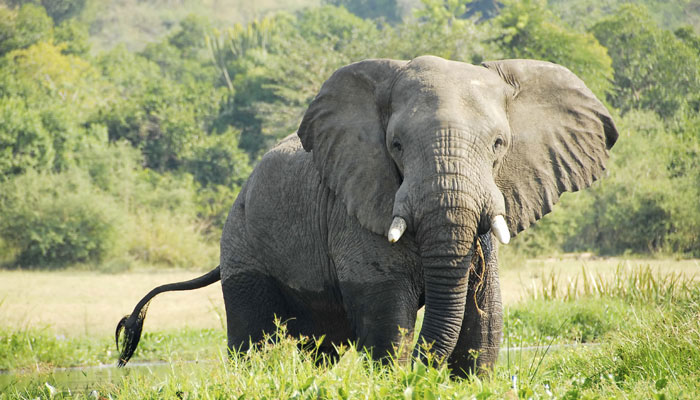New Delhi: Sparking a fresh debate over Thailand’s animal tourism industry, a celebrity elephant weighing five tonnes, who has starred in many feature films and commercials, trampled its owner to death.
Zoo officials on Tuesday said that the accident took place on Monday morning in the northern city of Chiang Mai, just after his 54-year-old owner Somsak Riengngen unchained the elephant named Ekasit.
With a mahout, or handler, on his back, Ekasit took a few steps before reversing course and attacking Somsak, who was on the ground.
“The elephant suddenly turned back and used his trunk to grab the victim. Then the elephant used his trunk to crush him,” Wuthichai Muangman, acting director of Chiang Mai Zoo.
Wuthichai, who described Somsak as an “elephant expert,” said the 32-year-old animal was in musth when the accident happened.
Ekasit, who according to a zoo official appeared in Thai and foreign films as well as several television advertisements, was being temporarily housed at the zoo under a contract due to expire in April.
Thailand is infamous for its elephant tourism trade wherein the animals are subjected to performing in circuses, giving rides, or hired out for other forms of entertainment.
A July report by World Animal Protection found that twice as many elephants are pushed into Thailand’s tourism industry as the rest of Asia combined, with most kept in “severely inadequate conditions.”
Out of 2,923 elephants documented as working in Asia’s tourism trade, 2,198 were in Thailand.
Wuthichai said the Chiang Mai Zoo does not hold elephant shows but allows tourists to feed the animals.
Animal rights campaign group PETA said that while the keeper’s death was a tragedy, it illustrated the potentially violent consequences of keeping elephants confined.
“Is it any wonder that some of these gentle animals eventually become fed up and fight back after being chained while confined to small enclosures that are a fraction of the size of their natural habitats?” a statement said.
AFP

